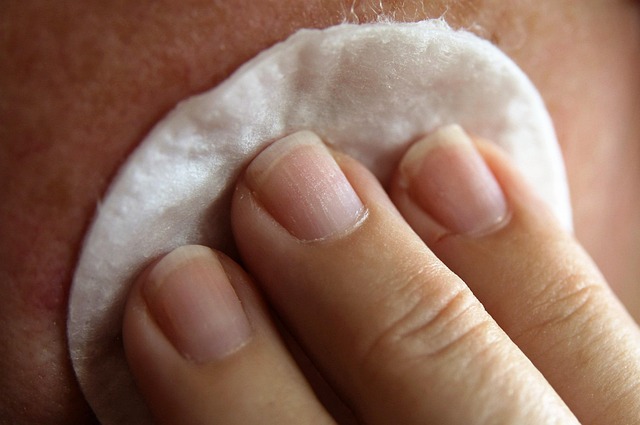Skin tags, caused by factors like obesity or hormonal changes, are commonly removed for aesthetic reasons. In Bristol, professional Bristol Tag Removal is advised over DIY methods due to potential risks of irritation, scarring, and infection. Expert excision boosts confidence, improves self-perception, and alleviates friction-related discomfort. The swift recovery process leaves smooth, clear skin, enhancing overall appearance.
Considering removing those unsightly skin tags? You’re not alone. Many people seek Bristol tag removal for improved appearance and confidence. This comprehensive guide explores the benefits of eliminating these small, benign growths. We delve into understanding skin tags, their potential health risks, and effective removal methods, both professional and DIY. Learn about the recovery process and long-term advantages, empowering you to make an informed decision about Bristol tag removal.
- Understanding Skin Tags: Causes and Common Areas
- Potential Health Risks Associated with Skin Tags
- Improved Appearance and Confidence Post Removal
- Effective Removal Methods: Professional vs DIY Approaches
- Recovery Process and Long-term Benefits of Removing Skin Tags
Understanding Skin Tags: Causes and Common Areas
Skin tags, also known as acrochordons, are small, soft skin growths that typically appear as hanging or loose pieces of skin. They are usually harmless and often go unnoticed, but some individuals choose to have them removed for aesthetic reasons or due to discomfort. Understanding their causes and common occurrence areas is essential when considering Bristol Tag Removal.
These tags can develop anywhere on the body but frequently show up in areas where skin rubs against itself, such as the neck, armpits, groin, and chest. They are commonly found in people who are overweight or have a family history of skin tags. Hormonal changes, pregnancy, and certain medical conditions like diabetes can also increase the likelihood of developing these growths.
Potential Health Risks Associated with Skin Tags
Skin tags, though often harmless, can pose potential health risks if left unattended. These small, soft skin growths may seem insignificant, but in some cases, they can lead to more serious complications, especially if they become irritated or infected. While most skin tags are benign, there’s a chance they could develop into something more concerning, particularly in individuals with compromised immune systems.
In the case of Bristol tag removal, it’s crucial to address any concerns regarding health risks. Professional removal by qualified experts is recommended to minimize the chances of infection and ensure a safe procedure. This is especially important as some home remedies or amateur attempts at removal can cause further irritation, scarring, or even introduce bacteria, leading to potential health issues.
Improved Appearance and Confidence Post Removal
After successfully removing skin tags, many individuals experience a significant boost in their overall appearance and confidence. These small, harmless growths can often be unsightly and may cause individuals to feel self-conscious about their physical appearance. Bristol Tag Removal offers a solution by expertly excising these tags, leaving smooth, clear skin.
The psychological impact of ridding oneself of skin tags is profound. It encourages people to embrace their skin with renewed confidence, knowing that their body appears more uniform and aesthetically pleasing. This sense of empowerment can positively influence one’s self-perception and overall well-being, fostering a happier and more secure individual.
Effective Removal Methods: Professional vs DIY Approaches
When it comes to removing skin tags, there are two main approaches: professional treatments and DIY methods. In terms of Bristol Tag Removal, seeking professional help from a dermatologist or qualified medical practitioner is often the recommended path. They have access to advanced techniques like cryotherapy (freezing), cutting, or laser removal, ensuring precise and effective results. This method is ideal for individuals who want swift and permanent solutions, especially for larger or more persistent tags.
On the other hand, DIY approaches are available for those seeking a more affordable and less invasive option. Home remedies such as duct tape or salicylic acid treatments can be effective for smaller skin tags. However, it’s crucial to remember that these methods might not always guarantee complete removal and may result in scarring if not performed correctly. As previously mentioned, professional care offers the best outcomes for removing skin tags, providing peace of mind and a tailored solution.
Recovery Process and Long-term Benefits of Removing Skin Tags
The recovery process after Bristol Tag Removal is typically quick and relatively painless. Most patients experience only mild redness, swelling, or discomfort at the treatment site, which usually subsides within a few days. The procedure involves freezing or cutting off the skin tags, so minor bruising or bleeding might occur but is usually temporary. Patients are often advised to keep the area clean and dry for a couple of days post-treatment.
In the long term, removing skin tags offers several benefits. Not only does it improve cosmetic appearance, but it can also provide relief from irritation or discomfort caused by these small growths. Skin tags are usually harmless, but they can be unsightly and sometimes catch on clothing or jewelry, leading to discomfort. By removing them, individuals can gain a sense of confidence in their skin’s appearance and avoid potential friction-related issues.
Removing skin tags in Bristol can significantly enhance both your health and appearance. By understanding the causes, common areas, and potential health risks associated with these growths, you can make an informed decision about their removal. Post-removal, expect improved confidence and a more uniform complexion. The choice between professional or DIY approaches depends on personal preference and budget. Regardless of method, the recovery process is typically quick, and the long-term benefits include reduced skin tag recurrence and a boosted self-image.
